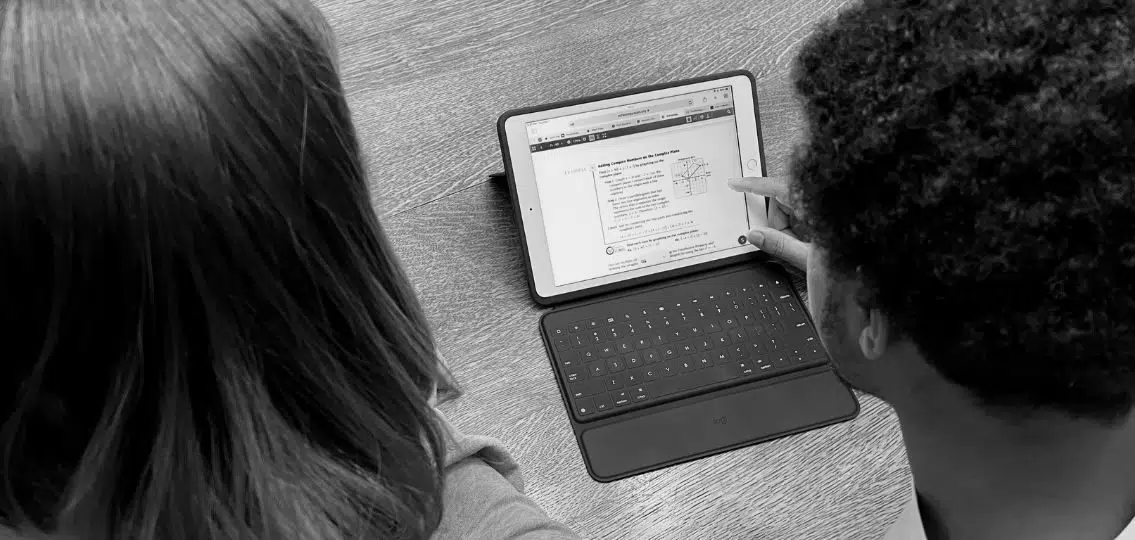I graduated high school limping through calculus. My plans for college included a humanities-related major and a college schedule that allowed for the easiest math class available. Since then, other than balancing a checkbook, converting fractions in recipes, and using percentages to find sale prices when I rummage through clearance racks at Banana Republic, I haven’t needed math skills that much as an adult.
But then, a pandemic shifted everything off course, including my plan to avoid more difficult math for the rest of my life.
In March 2020, like other teens around the world, my sons headed home with their iPads for a new phase of “virtual learning” while I learned how to Zoom, doom-scrolled through Facebook, babysat my sourdough starter, and pretended the world wasn’t falling apart.
Those distractions didn’t shield me from the truth forever, though: my 9th grader needed extra help if he was going to make it through geometry.
Anything but geometry. Why couldn’t it be algebra?
In high school, I actually liked algebra a little bit. Solving equations made sense to me, kind of like a crossword puzzle. Similar to how I loved balancing equations in chemistry, I appreciated the symmetry of algebraic equations and the ability to plug my answer back in at the end to make sure I had followed the steps correctly. That world made sense.
But quadrilaterals and angles? I was grateful for engineers who used them to build safe bridges and skyscrapers, but I had no use for them personally. And please, God, don’t say conditional statements and reasons! I still have traumatic flashbacks from sitting in Mrs. Sweet’s second story classroom while she wrote nonsensical two-column proofs on the board. She wrote familiar English words—but when she put them together as a proof, words like “given” and “therefore” became as confusing as the French conjugations we were learning downstairs with Madame Mefferd.
My son needed help, though, and I was determined to provide it.
I turned to the internet. We established a routine. We pulled up chairs to our oak kitchen table, watched videos from Khan Academy, and stumbled through problems on IXL. Pencils were broken, harsh words were spoken, accusations were exchanged. We both lost our patience.
If only he needed help analyzing a Mary Oliver poem or writing an essay about Of Mice and Men!
Somehow, though, learning eventually took place. My son learned a bit about vertices and planes. I learned: he preferred mechanical pencils with clean erasers; his handwriting was tiny and precise; and he was growing up too darn fast.
With sharp wit and an uncanny ability to create an argument about anything (Who’s your favorite billionaires: Jeff Bezos or Elon Musk? Are vaccines safe? Can I make a decent glass of lemonade?), he was turning into a young man with his own tastes and opinions, even those that drove me bananas. No longer the gap-toothed little boy who loved playing catch in the basement with his dad, he was now a young man who sometimes needed to shave and liked to do squats with me on his back.
The pandemic stole his time with friends and high school experiences he would never get back, but it also gave me extra time with him, which I appreciated—even if we spent some of that time on something as annoying as geometry.
As time went on, we broke fewer pencils, and we even shared some laughs. I won’t say either of us became an expert on any kind of geometry content, but he made it through the class relatively unscathed. And while I still hate proofs, I now appreciate their measured logic.
This year, my sons are back in school. Even though it’s still far from a “normal” school year, I say a little prayer of thanksgiving when they head out the door to learn from teachers actually trained in content areas.
Now my son is taking Algebra 2, and because he’s developed some study skills and is comfortable asking questions from his teacher (who’s great!), he really hasn’t needed me much. I’ve helped with a few problems on IXL and printed review sheets before an exam, but we no longer have a daily routine at the kitchen table.
I don’t miss the broken pencils and lost patience, but I do miss our intentional time together.
Recently he was studying for an important exam on the quadratic formula.
“I’m happy to help you with that,” I said, surprising myself. “It’s just plugging numbers into a formula. That’s my favorite kind of math!”
“Do you know how to solve them with ⅈ?” he asked. “It’s, like, some kind of imaginary number?”
“Imaginary WHAT?” I exclaimed. “There’s no such thing as an imaginary number!” This was the kind of thing that made me vow to avoid complex math forever.
But then I remembered how it felt to learn alongside him last year. So I made us each a cup of tea, and I pulled up a chair to the kitchen table.




